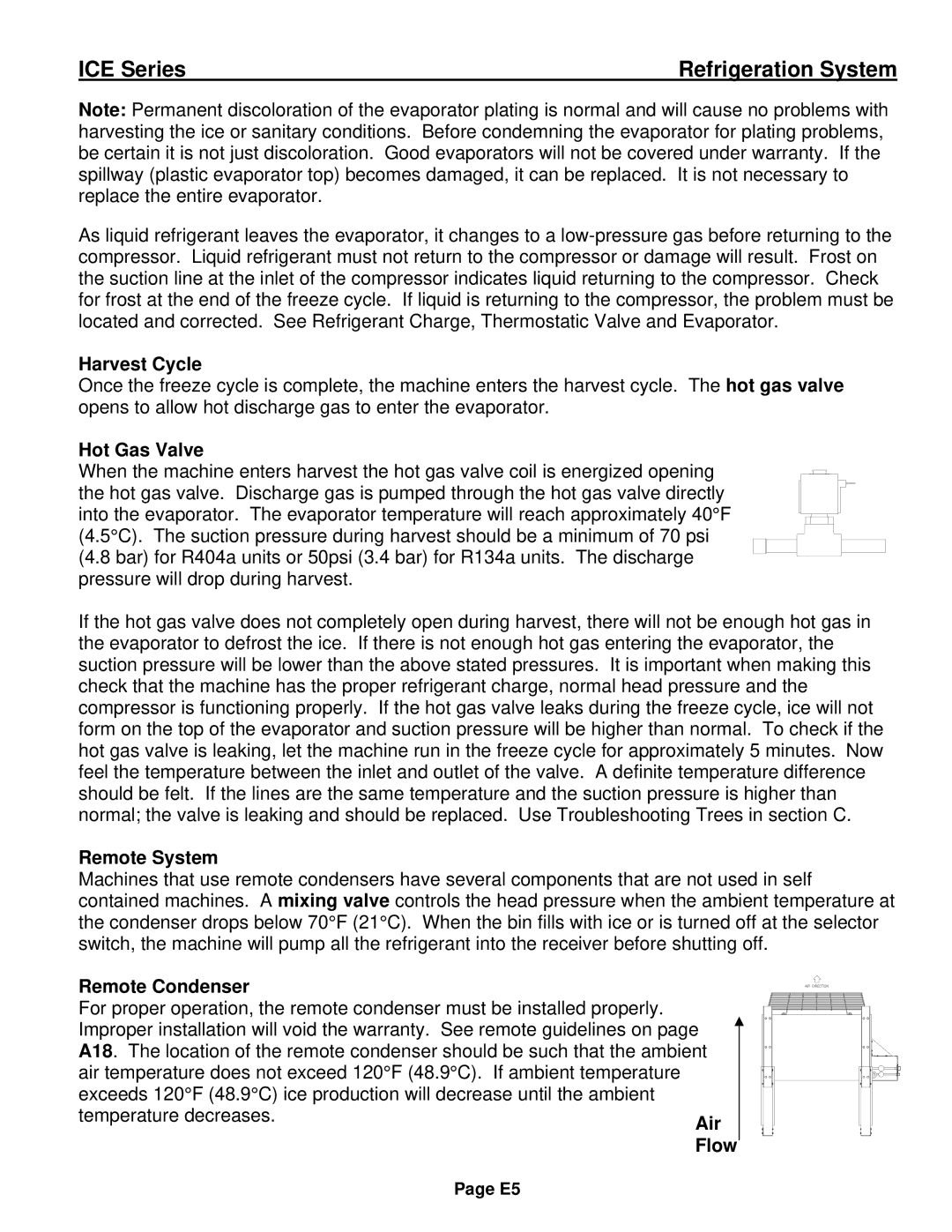ICE0250 Series specifications
The Ice-O-Matic ICE0250 Series is a high-performance, modular ice maker that has been designed specifically to meet the needs of commercial establishments. Known for its durability and efficiency, this series is ideal for restaurants, bars, and hotels requiring a consistent supply of quality ice. The unit produces up to 250 pounds of clear, cube ice per day, making it an excellent choice for businesses with moderate ice demands.One of the standout features of the ICE0250 Series is its energy efficiency. The ice maker is designed with a focus on reducing energy consumption, enabling business owners to save on operational costs while still providing ample ice for their customers. The unit is ENERGY STAR certified, reflecting its compliance with energy efficiency guidelines set by the U.S. Environmental Protection Agency (EPA).
The ICE0250 model also incorporates a unique air filtration system that helps ensure an uninterrupted ice production cycle. This technology minimizes the impact of airborne dust and contaminants, which can significantly affect the quality and hygiene of the ice produced. The unit's heavy-duty construction is designed to withstand the rigors of commercial use, providing long-lasting performance.
Another key characteristic of the ICE0250 Series is its compact design, which allows it to fit seamlessly into various commercial kitchen settings. Despite its smaller footprint, the unit does not compromise on ice production capabilities. Additionally, its user-friendly controls simplify operation, making it easy for staff to manage the ice-making process effectively.
Maintenance is also straightforward with the Ice-O-Matic ICE0250 Series. It features a self-cleaning function that automatically flushes the system, helping to maintain optimal performance while reducing the frequency and complexity of manual cleanings. This feature can save valuable time for busy kitchen staff.
In conclusion, the Ice-O-Matic ICE0250 Series stands out as an efficient, durable, and reliable ice maker for commercial applications. With its energy-saving technologies, robust construction, and ease of maintenance, this ice maker is a top choice for businesses looking to deliver ice in a consistent and hygienic manner. Whether for serving refreshing beverages or creating exquisite culinary presentations, the ICE0250 ensures that ice production remains effortless and efficient.

